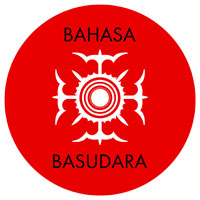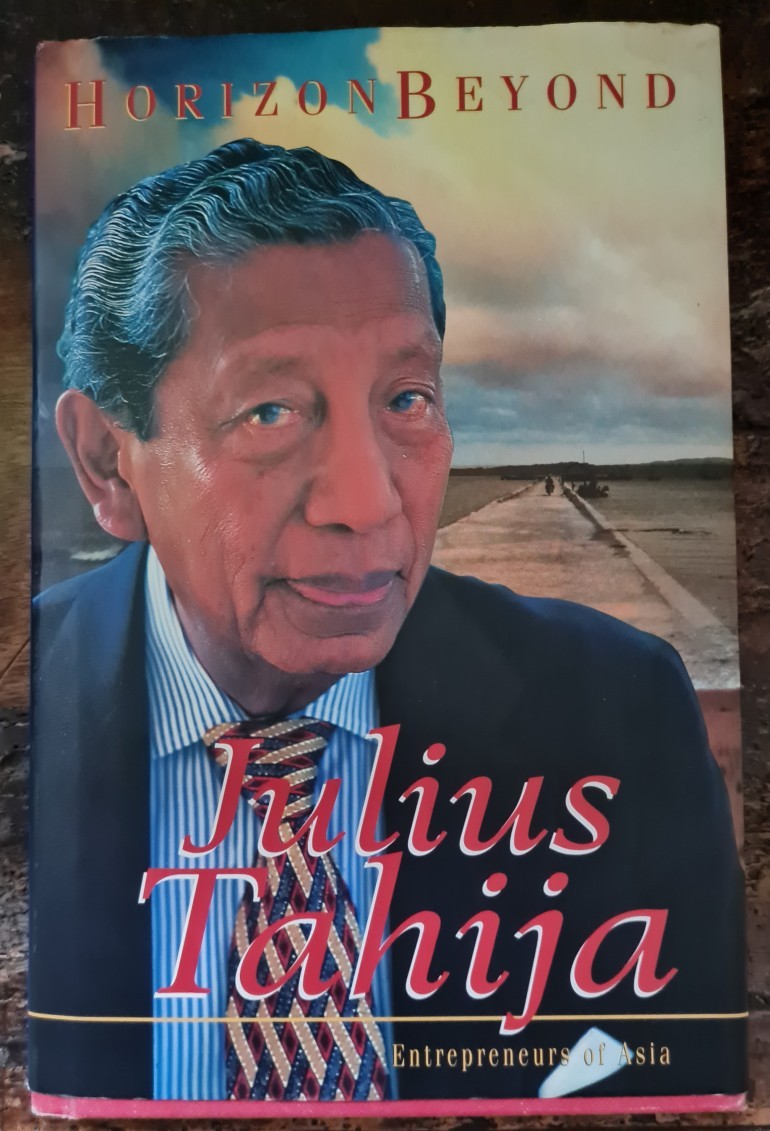My family often complaints that I mainly read serious books, but to me non-fiction (in particular biographies and historical books) are very interesting, inspiring and provide a welcome break from my daily activities.
In my Bahasa Basudara classes I always ask students who are their Moluccans heroes. Most will answer Pattimura, Christina Martha Tiahahu and some will mention Dr. Leimena, Johannes Latuharhary, Sultan Baabulah, AJ Patty, etc. All very interesting people who have contributed so much to the Moluccan society and there are many books or articles on each one of them.
However one of the understated Moluccan heroes, for me, is Julius Tahija. This is perhaps influenced because of my background as an entrepreneur in the mining industry.
There are at least three books about the life and work of Julius Tahija. The first one is “Horizon Beyond. Julius Tahija, entrepreneurs of Asia” (Published by Times Edition 1995). The “Horizon Beyond” book has been translated into Indonesian entitled “Melintas Cakrawala (Kisah Sukses Pengusaha)” published by Yayasan Tahija. The second one is written by his wife Jean Tahija called “An Unconventional Woman” (Published by Viking 1998) describing her experience as an Australian woman married to an Indonesian. The third book is the accompanying booklet to “Melintas Cakrawala” called ”Membangun dengan Nurani” (Developing with a Conscious). This is a collection of interviews with selected business leaders. In this article I will review “Beyond the Horizon” but I would recommend reading all three books about Tahija. There is also an article by Tahija in the Harvard Business Review written 1st September 1993, worth reading "Swapping Business Skills for Oil". The Tahija Foundation in Jakarta already sent some these books to Pusat Studi Bahasa Universitas Pattimura.
Tahija grew up in Surabaya where he learnt to become a young entrepreneur and built his business from a small scale rice trader to a company of importers of foreign goods. By the time he was 21 years old he joined the Dutch East Indies Military KNIL. During World War Two Tahija became famous by defending Yamdena Island in Tanimbar, with only 13 soldiers, from two Japanese ships. For this heroic act he received the highest and oldest bravery medal from the Netherlands called “The Military William Order”. After the war he contributed to the development of Indonesia by becoming successively Minister of Social Affairs, then Minster of Information and finally as Minister of Economy in Negara Indonesia Timur. Following the short period in Government, he joined the Indonesian Army in 1949. In 1951 he left the military and helped built Indonesia’s economy by bringing in foreign investments into Indonesia and become the CEO of Caltex Indonesia (a joint venture between Chevron and Texaco). He also played an important role in the development of Freeport Indonesia. These western businesses came to Indonesia with a background of Indonesia becoming more socialist, anti-Western and increasingly corrupt. It is a remarkable achievement that Tahija was able to promote Indonesia and attract Western investments in that environment. In 1970 he expanded his business empire into banking by buying Bank Niaga which he then sold just before the collapsed of the Indonesian economy in 1997. Throughout his life and different career paths Tahija has a well-regarded reputation as a clean and honourable businessman who acted with integrity and professionalism. He noted that long-term business is built on these principles. He strongly believed that private enterprise was good for the economy because it provided jobs, national income and developed human resources and technology.
Horizon Beyond is full of life lessons and business tips. For instance some of the lessons he learnt from the Chinese traders when started his business includes: When you negotiate overwhelm your opponent with facts and logic; Spend only what you earn; Your word is your word (Written contract means nothing); Establish personal relationship; Never cheat long-term customers; and Work hard (do the work yourself).
As an entrepreneur he passed on these wisdoms: Conditions change but principles do not; Don’t worry about who gets the credit; Everything is a good opportunity; Always listen and learn; Once you act, have no regrets; Take time to think; Think long-term; Make tough decisions, no matter what the emotional costs or short-term criticism; Trust people on face value only when you have some control; and Time is your most valuable and irreplaceable commodity.
In the world where Businesses are often soiled by corruption and greed, it is good to see a successful Moluccan businessman who is well known for his integrity and conviction that business can be a force of good. What an inspiration for all of us!


11_105_90.jpg)




_105_90.png)